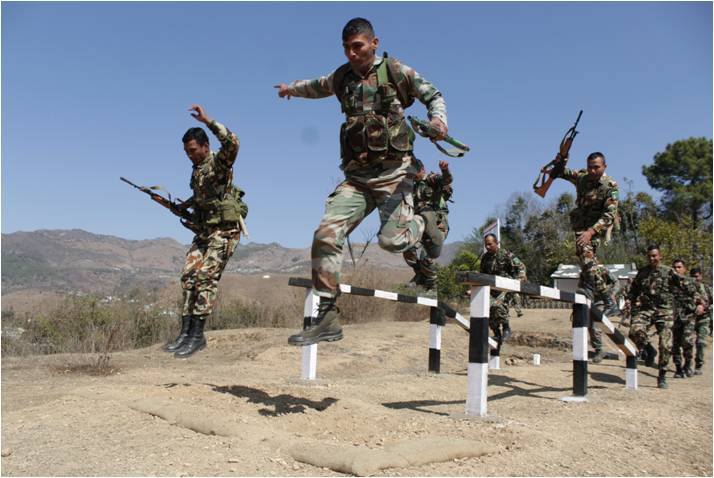IDR Blog
Random Thoughts on National Security Reforms and not tinkering with Personnel Policy alone
Luckily the ‘Agniveer’ scheme and violence in its aftermath have faded out of the media due to its cyclic nature. This gives us an opportunity to a calmer refection on the whole gamut of issues concerning national security.
Napoleon, had once famously said that ‘moral (morale)’ is three times more important than weapons in contributing victory in war. Closer to our time, a ‘Tour of Duty’ based young American Army equipped with the best and latest arms and equipment last year succumbed to a rag tag bunch of Taliban and beat a hasty retreat from Afghanistan. The only factors separating the two were ‘morale and motivation’. When many of us questioned the ‘Agniveer’ in its present unmodified form it was not the ‘fear of unknown’ but effect of this reform on the unknowable impact on non-quantifiable factors like morale, motivation, cohesion that makes our army tick.
I must confess that this analyst is also heavily influenced by and limited by infantry experience. Each different arm/service of the army has different set of work and training environment and ‘one size fits all’ approach for recruitment will not lead to efficiency. When it comes to the Air Force and Navy, the differences are even greater and it would be best if each is left free to decide on the tenure, duration of training, basic recruitment criterion. In order to have optimum solution, it will be best to evolve a separate set of models.
For instance, an airman, whose job is technical and ground support to aircraft at bases that are located in developed area, is young profile really necessary as needed by an Infantry soldier in Siachen? Here technical expertise must triumph over age. This shows the absurdity of applying ‘general duty’ recruit criterion to air force. Similar must be the case in Navy.
Many of the contradictions and unknowable impact could have been avoided if a holistic approach to rethink the entirety of National Security gamut was adopted. Single criterion of how to reduce the defence expenditure would have shown many paths.
Top of the head suggestions that should be considerations in any such holistic review are enumerated below. India faces a twin land threat from China and Pakistan mainly on mountainous border. It also needs to guard its sea lanes. Air Force/Space force is needed to help Navy and Army carryout its mission. In addition to the external threats there is a new field of Cyber warfare that has emerged that can threaten the country’s economy without firing a shot. Then there is the threat of insurgency and terrorism in some part of the country. With out two adversaries armed with nuclear weapons, we also need to maintain a ‘deterrence’ capability.
Look at national security as a national endeavor with all resources and not a mere job of armed forces this will again lead to reduction of numbers. Theatrization of army with holding forces dedicated to each command that have a ‘holding’ role and could comprise of mix of paramilitary/state armed police/militia.
Concept of local border scouts militia with part employment and limited liability on even hot borders like Ladakh, Himachal, Uttarakhand and Nagaland, Mizoram, Tripura and Manipur. Proportionate reduction of the army.
Giving up the ‘expeditionary force’ template for logistic organization and max privatization of repair/maintenance etc. As the country becomes more ‘Atmanirbhar’ in defence equipment many of the repair and maintenance jobs can be taken up by the manufacturers themselves leading to huge manpower saving.
Finally like in the past we envisaged only a short duration conflict due to international constraint. Today a conventional conflict WILL be of limited duration and spread because of NUCLEAR THRESHOLD……….. there is a necessity to lay down RED LINES and then cater to only that much of force ………..
Very obviously there is a need of comprehensive study and RUTHLESS implementation of all-encompassing reforms rather than the current tinkering with just one aspect that is manpower. We need to draw right lessons from plight of Ukraine or situation in Afghanistan. In changed environment where the Central Para Military forces have brought the Left wing insurgency under control, it is time to look at their down sizing and integration into overall defence design even in case of a conventional war.
One of the flaws of the present system of security analysis led by armed forces is that threat perceptions often come to collection of ‘worst case’ scenarios by individual services and its aggregation at national level. It was hoped that after the reforms of higher defence organisation with creation of national security council, National Security Advisory Board et al this segmented approach will end. Seems old habits die hard and there is a tendency to cherry picking or plucking a low hanging fruit as seems to have happened in case of Angniveer scheme.
Reforms in the defence posture that got us a victory in 1971 is the need of the hour, both to reduce expenses as well as promote efficiency. But in doing so concentrating only on reduction of expenses on manpower at the cost of intangibles is fraught with danger.
This is in no way claimed to be ‘solution’ to the current problem. A great thought needs to be given, collectively by the NSC (national security council) even for formulation of various questions that need to be studied. Let us hope we take this crucial first step. Agniveer scheme and reactions to it have underlined the need.
“To those who advocate Agniveer scheme, I have a gentle reminder! Have we forgotten the moto on Chetwood Hall that we all swear by! The welfare of our men is our second sacred duty after safety of nation. It is because of this credo that generation of officers have built up this bond of kinship with our men. Agnipath threatens to snap this bond as men perceive that officers have failed to look after their interests.”





